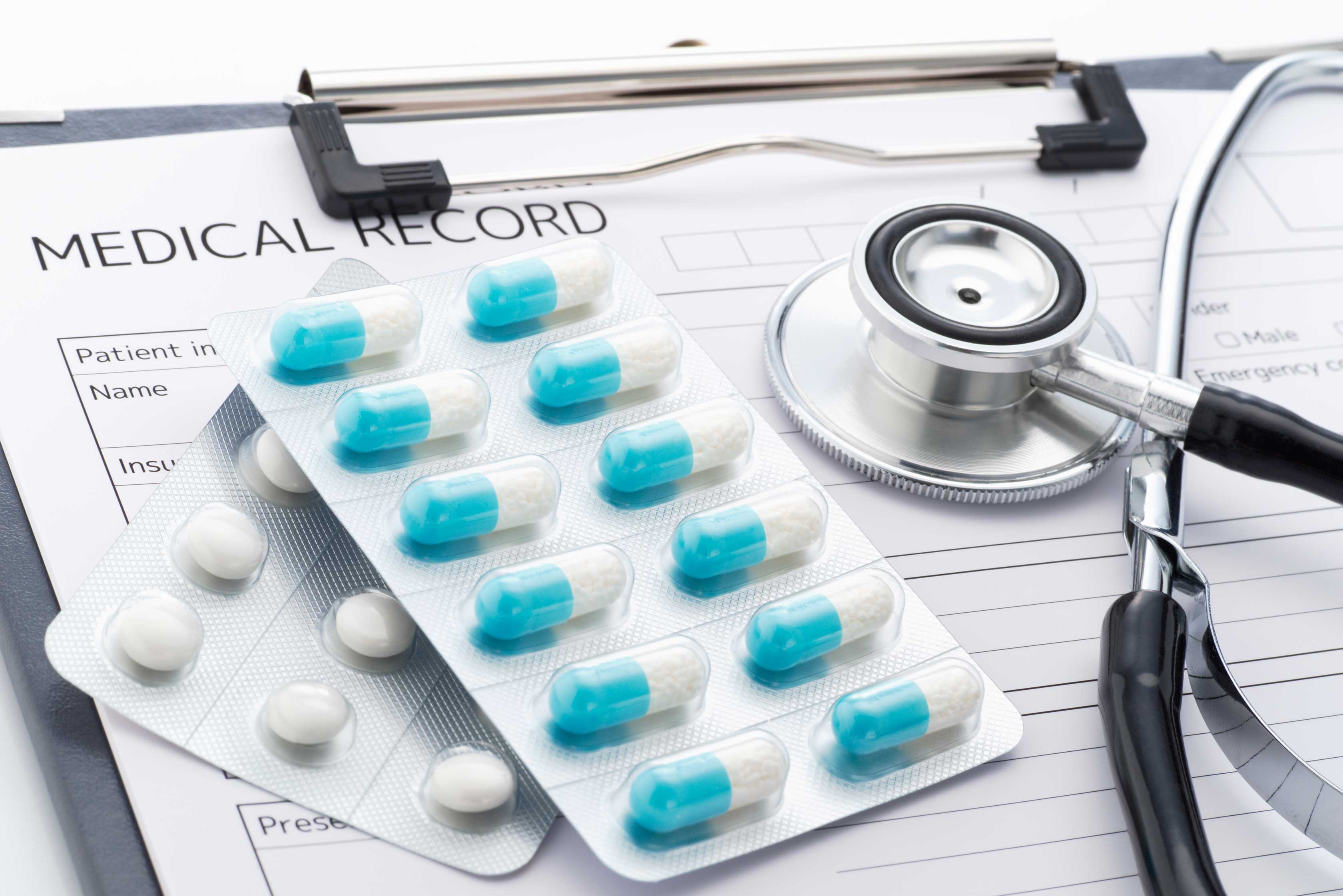The prevention of further kidney damage

Slowing down progression
If your kidneys' filtering function is already impaired, it is important to slow down the progression of the disease.
Various measures may be helpful for this:
- See a doctor as soon as possible and on a regular basis. They can best advise you on your kidney disease.
- Take your medication as directed by your doctor. Your medication plan is an extremely important part of therapy. It treats the symptoms of kidney disease and aims to slow the progression of the disease.
- A low-salt diet has been also shown to reduce blood pressure and proteinuria. Let your doctor advise you on this.
- An increased fruit and vegetable intake may support a decrease in body weight and blood pressure. However, please be aware that high potassium levels found in fruit may lead to serious complications if not consumed in the correct amount. Please consult your doctor on this!
- Light regular exercise and increased physical activity can help with lowering blood pressure and can improve one's quality of life. It may also help to reduce the risk of heart problems. Heavy exercise is not advised. Please consult with your doctor on this.
- Stop smoking, as this has been shown to reduce your risk of heart problems

Active lifestyle
Coping with chronic kidney disease can be tough. Actively changing your lifestyle can have a positive impact on your well-being. You should try to preserve the functioning of your kidneys and keep them working for as long as possible.
You probably already know that light daily exercise can have a positive effect on your body. Regular exercise strengthens your muscles and bones, makes you become more flexible and improves your overall balance. Exercising also plays an important role for your mind. It can help distract you from negative thoughts or be a conscious form of self-care.
If your kidney function worsens or if any changes in your disease state occur, you may not feel as fit as you used to. The frequency and intensity of your training depends on your current state of health. Talk to your doctor before beginning an exercise program to get recommendations on what is good for you.
How light exercise may help you and your body:
- Reduce your blood pressure
- Improve your quality of life
- Reduce your risk for heart problems
- Reduce stress
- Create opportunities for (new) social contacts
As you can see, there are good reasons to exercise regularly!

Taking medication
Taking medication is an important part of your treatment. The aim of the medication is to alleviate symptoms of kidney disease, restore some of the disturbed hormones and keep your kidneys functioning for as long as possible. For these reasons, it is of the utmost importance that you take your medication regularly as prescribed by your doctor, even if you are feeling well!
It is also important that you tell your doctor about any other medications you are taking. Some medications are not well suited for kidney patients and your doctor can make the right decisions about your care.
Nutrition for kidney patients
At first, you might find it difficult to adhere to new dietary guidelines. However, over time, you will find new ways to enjoy your meals. Try to remember that what you eat has a direct impact on your well-being and certain ingredients can influence the functioning of your kidneys.

Balance
As a symptom of your kidney disease, you may experience a loss of appetite and therefore find it difficult to follow an adequate diet. This can initially lead to unwanted weight loss and later even to malnutrition. You can overcome this by following a well-balanced diet.
Protein
Protein is an important part of your diet. It is important to have a balanced diet, with the right amount of protein. If you need advice, talk to your dietitian.

Sugar
Sugar can cause weight gain but can also promote tooth decay. Sugar-sweetened drinks are low in nutrients and contain excess calories.
Salt
Consuming too much salt promotes water retention and high blood pressure. This may lead to a progression of your kidney disease. Try to experiment with herbs and spices!
Find recipes that fit a kidney-friendly diet and learn why kidney replacement therapy can support you in the next section.
What is an Adverse Event (AE)
Any untoward medical occurrence in a patient or clinical trial subject administered a medicinal product and which does not necessarily have a causal relationship with this treatment [Dir 2001/20/EC Art 2(m)].
An adverse event can therefore be any unfavourable and unintended sign (e.g. an abnormal laboratory finding), symptom, or disease temporarily associated with the use of a medicinal product, whether or not considered related to the medicinal product (Annex 4 Guideline on good pharmacovigilance practices (GVP) Rev 4).
Reporting Side Effects
If you get any side effects, talk to your Doctor, Pharmacist or Nurse. This includes any possible side effects not listed in the package leaflet. You can also report side effects directly via the Yellow Card Scheme at www.mhra.gov.uk/yellowcard.
By reporting side effects, you can help provide more information on the safety of this medicine.
Report an Adverse Event
Adverse events should be reported. Reporting forms and information can be found at www.mhra.gov.uk/yellowcard. Adverse events should also be reported to Fresenius Medical Care on 01623 445 215 and via medinfo-uk@freseniusmedicalcare.com
Medical Information
Call 01623 445 100 (please choose option 5). Opening times are Monday - Friday 9am - 5pm.
UK/HEMA/FME/0922/0002 – Date of Preparation September 2022.

